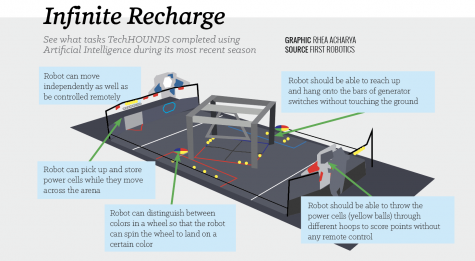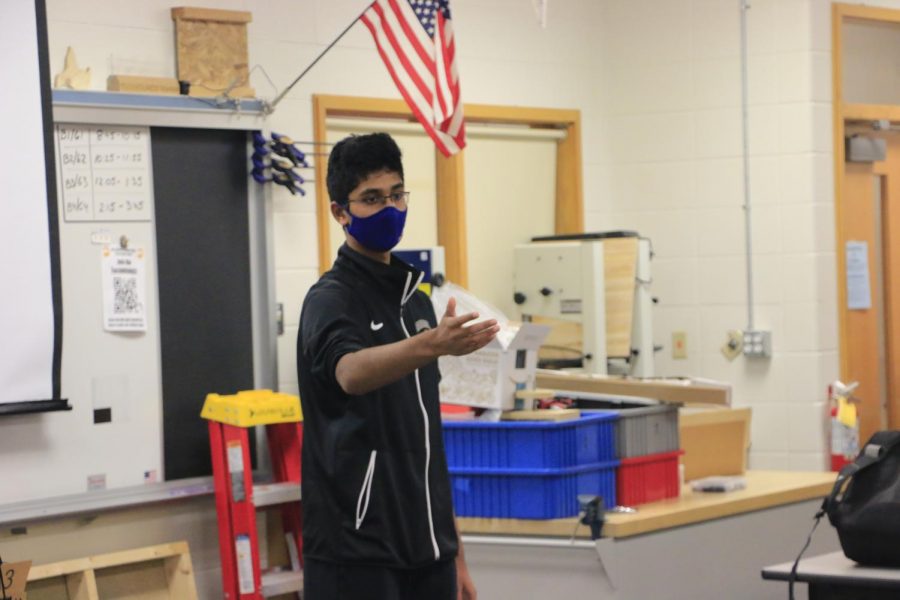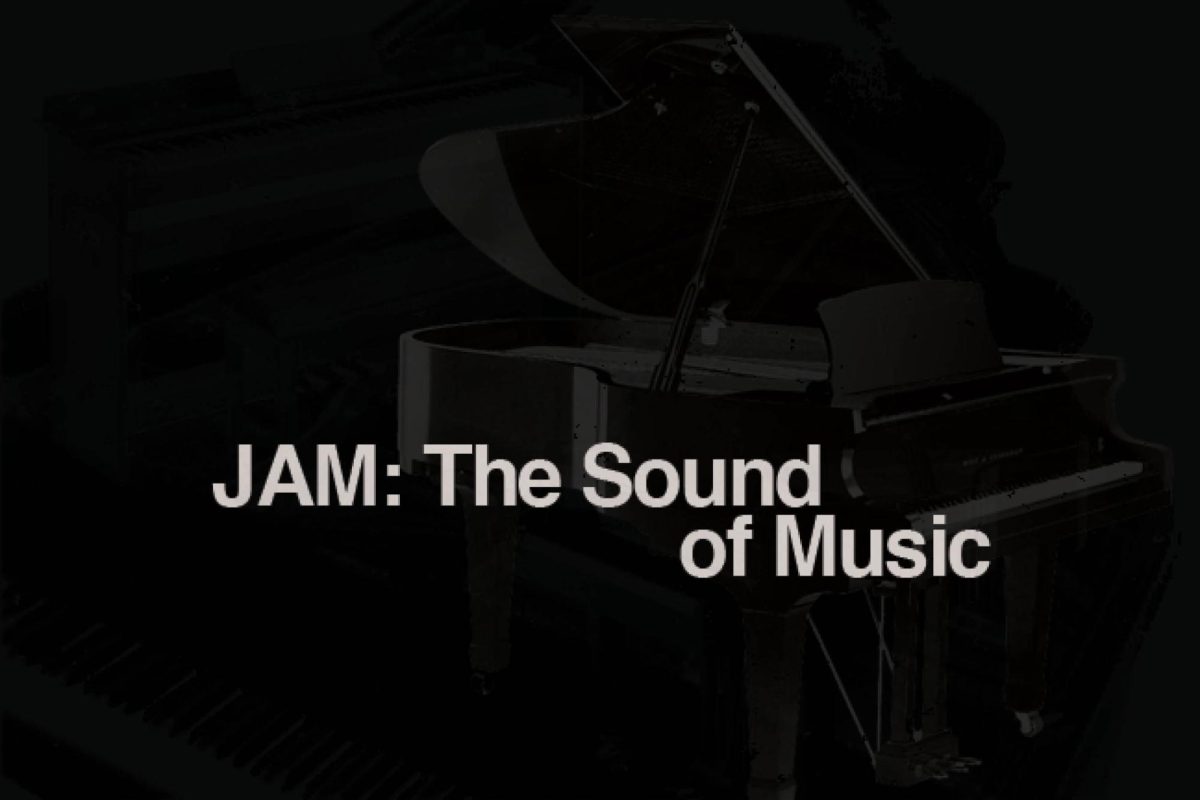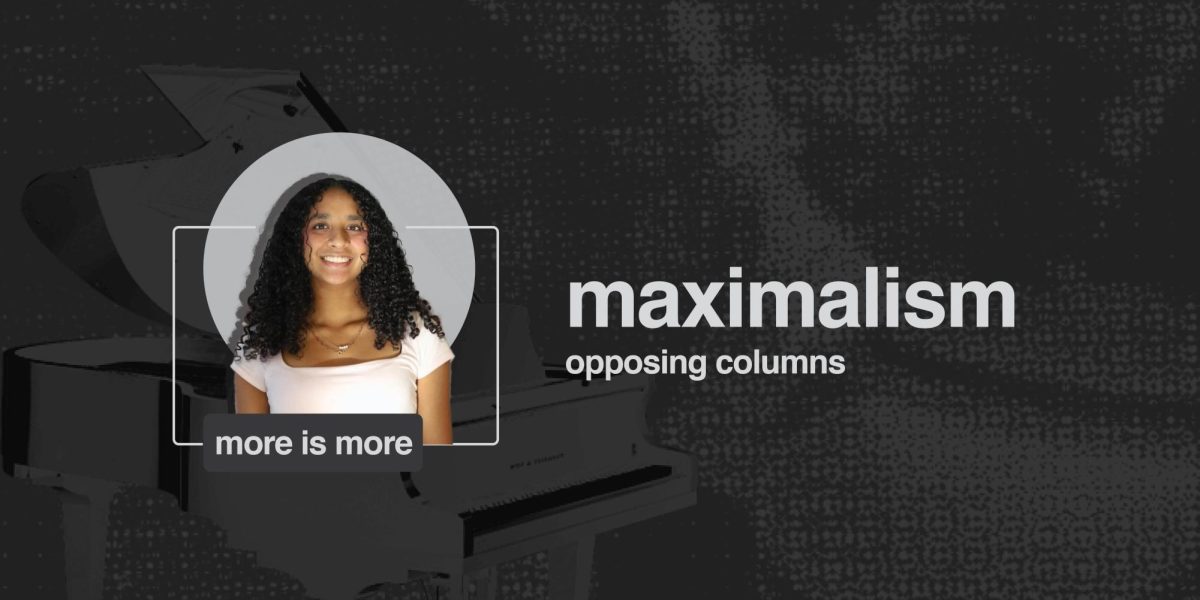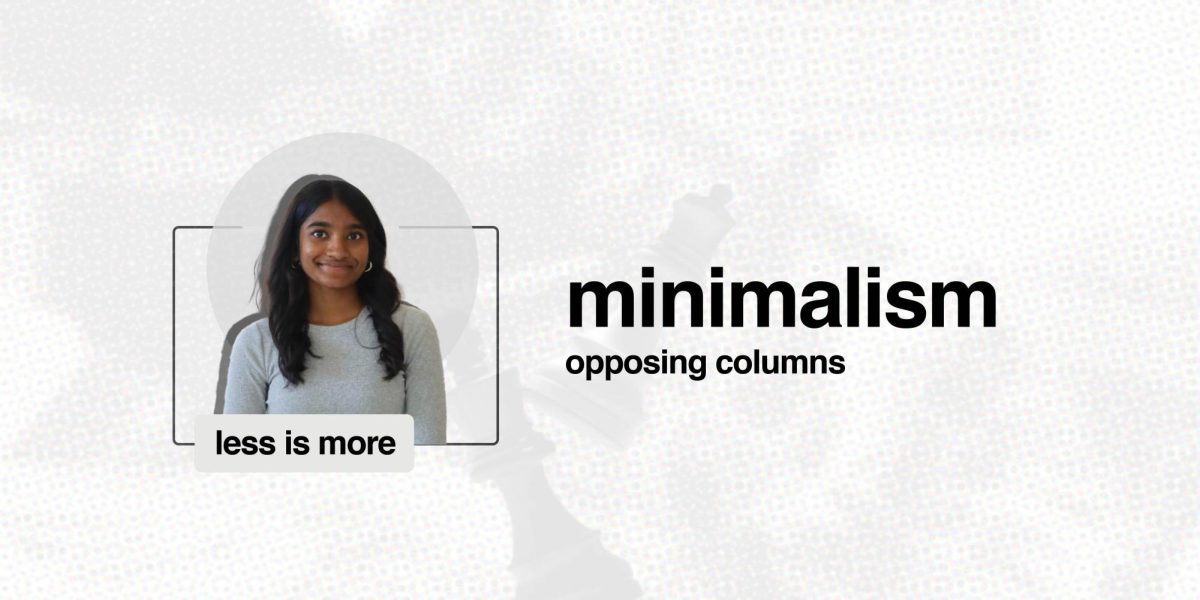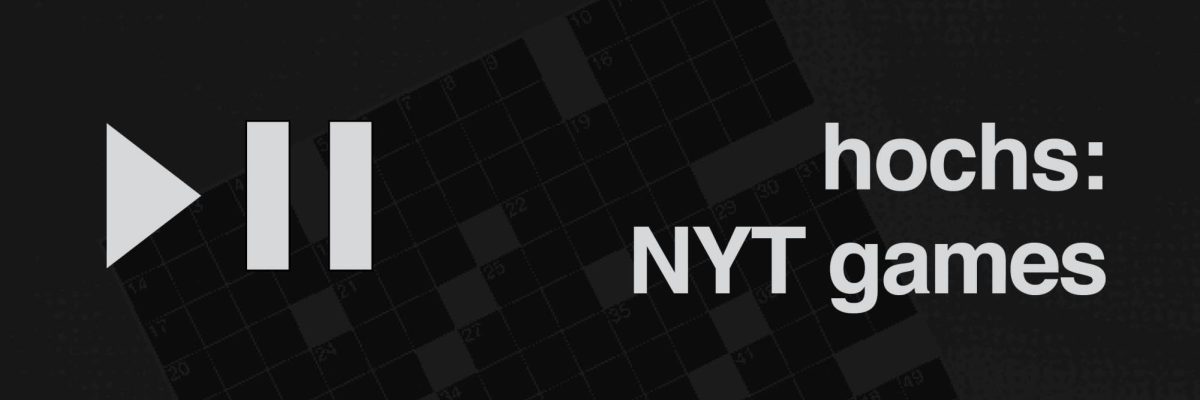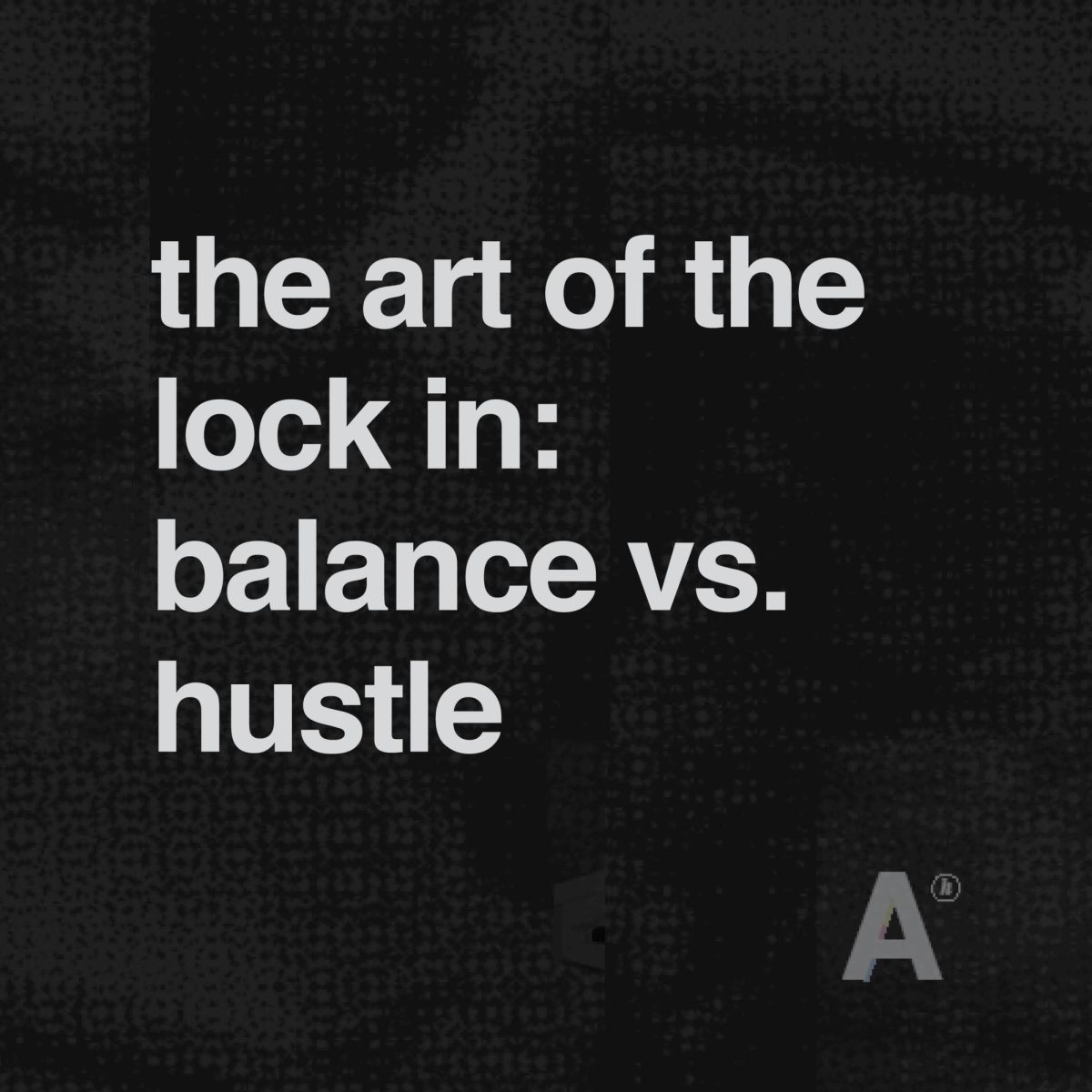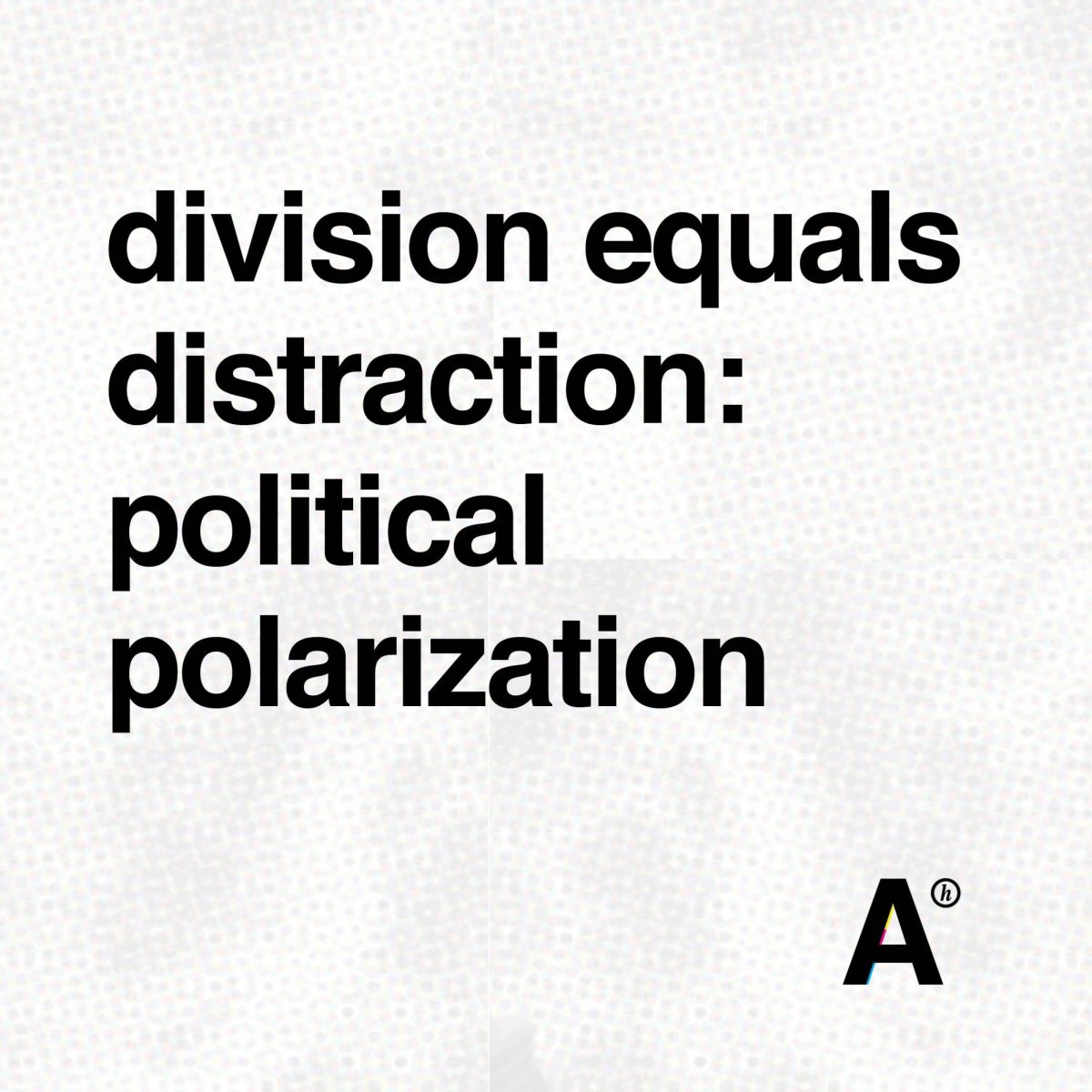A Mind Of Its Own
Aryan Indarapu, TechHOUNDS programming and electrical lead and senior, briefs club members on their roles during the callout meeting on Oct. 8. Due to hybrid scheduling, the club separated members into a red and blue cohort.
October 30, 2020
Despite the cancellation of the FIRST robotics competition (FRC), Aryan Indarapu, TechHOUNDS programming and electrical lead and senior, and fellow club members have been working hard on making changes and improvements to their robot. This includes improving the current Artificial Intelligence (AI) system in this year’s robot.
Indarapu, who said he became interested in AI after reading and hearing about it on the news, spent the majority of last year setting up a limelight camera that used artificial intelligence to help improve their robot’s vision system.
“Basically, we have a camera mounted on the robot and this camera senses these ‘retro-reflective tapes’ across the field, and based on those tapes it calculates the distance or whatever calculations the robot needs to do to get the most points,” he said. “It’s a pretty cool advantage we have over other teams. Not many other robots and other teams are privileged enough to have this piece of equipment that can do this for us.”
Carey Anderson, computer science teacher and club sponsor of the Computer Science Honor Society said, “I think what TechHOUNDS is doing with their robots in general, (especially) their implementation of artificial intelligence, has been extremely impressive. The level of interest some students have in artificial intelligence at Carmel High School is unlike anywhere else I’ve been.”
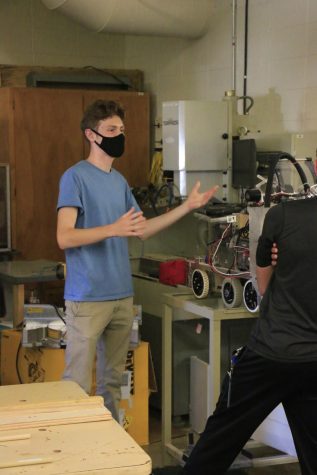
According to Aditya Ariyur, founder of the Artificial Intelligence and Machine Learning club and junior, AI occurs when a computer learns to display human-like behavior in certain tasks through the constant repetition of data.
“AI is extremely important because it has a variety of applications. For example, I did an internship over the summer where I had to identify different sites where RNA modification had occurred. I used AI for that because without AI there is human error since you can always overlook something, especially with such a big data pool,” he said. “You can use it in the medical field to analyze lungs, use it in cars to make (them)self-driving as Tesla does, (use) Face ID (on) iPhones, which are all available thanks to AI.”
However, over recent years, artificial intelligence and its uses in the modern era have been criticized and stigmatized by the general public.
Ariyur said, “There are two major perceptions (about AI). The first is that AI is extremely beneficial, which is where I fall in. The other is that it is bad because it takes away a lot of jobs and is very costly.”
Anderson brought forth a different perspective. “Well I think before we talk about artificial intelligence and the negative effects that might come with it, we need to take a step back and go back to when (industrial) machines were first introduced to (the) workplace,” she said. “While these machines did take over medial jobs and hurt many people, it also freed up more space for other jobs and creative positions. So, while many might feel the repercussions as we continue to integrate AI in our daily lives, I think society as a whole will start to benefit.”
Indarapu said he agreed. “Don’t be (scared) right now. I think that AI is an overly-stigmatized topic. I think we should (be cautious), but in the long run, it’s more impactful and it’s gonna help the world,” he said.
With this said, AI is still a recent field of study with new developments made daily and Ariyur said he believes the future looks bright with AI.
“We’ve started using AI in research and medicine, but I think we should continue progressing it. For example you can use something called ‘artificial neural networks’ which is used for analyzing different pictures. But if we progress this, we could make it so that it identifies different patterns that could aid in identifying diseases,” he said.
Indarapu said he believes TechHOUNDS will continue to use AI in their future robots.
“I think AI will become (a) prominent features of the robot aside from the limelight. Especially with our autonomous and other systems we have (and) especially with the rate technology is progressing, I think AI is going to start working itself elsewhere,” he said.